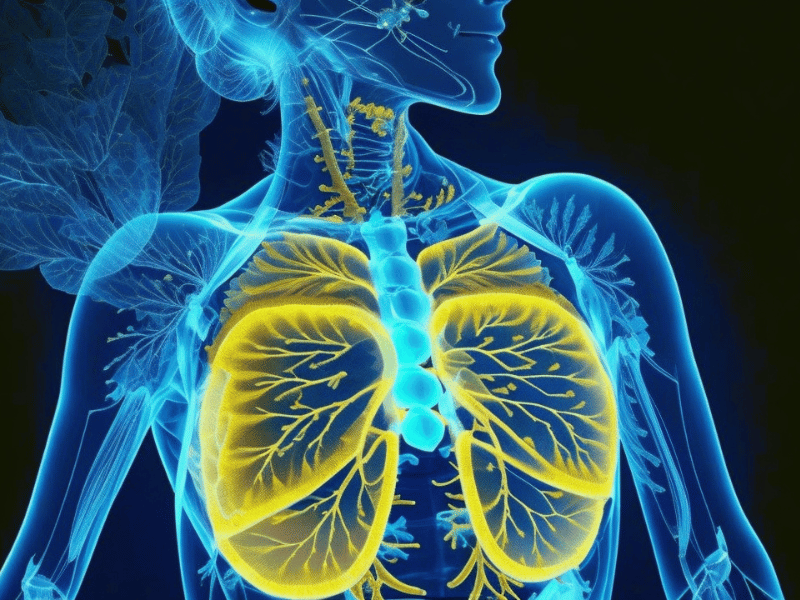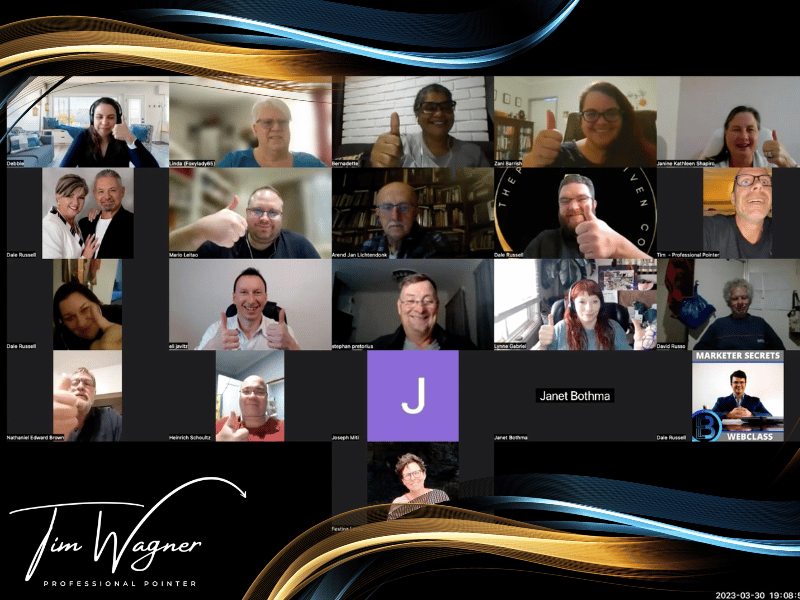The Foundation of Breathwork in Mental Health
Introduction
In an era where mental health has become a global concern, alternative therapies are gaining prominence. One such practice that has caught the world's attention is breathwork. The art of conscious breathing is not new; it has roots in ancient practices like Pranayama and Qi Gong. However, its application in modern mental health therapy is revolutionary. As the famous quote by Thich Nhat Hanh goes, "Feelings come and go like clouds in a windy sky. Conscious breathing is my anchor."
Why Breathwork?
Breathwork is not merely an act but a holistic approach to well-being. It involves controlled breathing exercises aimed at improving mental, physical, and spiritual health. But why is it effective for mental health? The answer lies in its ability to regulate the autonomic nervous system, which controls our fight-or-flight response. A study by Mental Health First Aid shows that practicing breathing exercises can lead to better mental health and positive emotions.
- Immediate Results: Unlike some therapies that take time to show effects, breathwork offers immediate relief from stress and anxiety.
- Accessibility: It can be practiced anywhere, making it a convenient option for busy individuals.
- No Side Effects: Being a natural practice, it doesn't have the side effects that come with medication.
The Physiology of Breathing
Understanding the physiology of breathing is crucial for grasping how breathwork impacts mental health. Breathing is an autonomic function, meaning it happens without conscious effort. However, when you take control of this automatic process, you can influence the systems it interacts with, primarily the nervous system.
- Oxygen Supply: Controlled breathing increases oxygen supply to the brain, improving cognitive function.
- Heart Rate: It helps in regulating heart rate, thereby reducing stress and anxiety.
- Endorphin Release: Deep breathing triggers the release of endorphins, which are natural mood lifters.
Breathwork vs. Traditional Methods
Breathwork is often compared to traditional methods like medication and psychotherapy. While each has its merits, breathwork offers unique advantages. It serves as both a preventive and curative measure, making it a comprehensive approach to mental health. For a more detailed comparison, you can refer to our article on Breathwork vs. Traditional Meditation.
- Cost-Effectiveness: Medications can be expensive and may require long-term commitment. Breathwork is virtually free.
- Self-empowerment: Unlike traditional methods that often involve external agents like drugs or therapists, breathwork empowers individuals to take control of their mental health.
Types of Breathwork for Mental Health
There are various types of breathwork, each with its unique set of techniques and benefits. Here's a brief overview:
- Holotropic Breathwork: Focuses on achieving a state of wholeness.
- Transformational Breathwork: Aims at personal growth and emotional well-being.
- Pranayama: An ancient Indian technique focusing on breath control.
In the words of James Nestor, "The art of breath awareness amounts to disengagement from the mind's chattering and whims and redirecting focus to the breath, in the present moment."
Stay tuned for the next part where we delve deeper into the specific techniques and their applications in various mental health conditions.
Breathwork Techniques for Specific Mental Health Conditions
How Does Breathwork Reduce Stress?
Breathwork's efficacy in stress reduction is not merely anecdotal; it's backed by science. The practice primarily targets the autonomic nervous system, specifically the sympathetic and parasympathetic systems. While the former triggers the 'fight or flight' response, the latter induces a 'rest and digest' state. Breathwork helps in balancing these two, thereby reducing stress. A study by the American Psychological Association confirms that controlled breathing can significantly reduce stress levels.
Techniques for Stress Reduction
- Box Breathing: Inhale for 4 seconds, hold for 4, exhale for 4, and hold for 4.
- 4-7-8 Technique: Inhale for 4 seconds, hold for 7, and exhale for 8.
Breathwork for Anxiety
Anxiety is often a result of overthinking and fear of the unknown. Breathwork helps by grounding you in the present moment, a principle rooted in mindfulness. Techniques like 'Alternate Nostril Breathing' are particularly effective. A study published in JAMA Psychiatry found that controlled breathing reduced symptoms of anxiety in individuals.
Techniques for Anxiety Reduction
- Alternate Nostril Breathing: Inhale through one nostril, hold, and exhale through the other.
- Diaphragmatic Breathing: Focus on engaging the diaphragm rather than shallow chest breathing.
Breathwork for Depression
Depression often involves a persistent feeling of sadness and a lack of interest in external activities. Breathwork can act as a catalyst in the production of 'happy hormones' like serotonin and dopamine. A study by Frontiers in Psychiatry supports the use of breathwork in treating depressive symptoms.
Techniques for Alleviating Depression
- Coherent Breathing: Maintain a coherent rhythm by inhaling and exhaling for an equal duration.
- Sudarshan Kriya: A rhythmic breathing technique that has shown promise in alleviating depression.
Breathwork and PTSD
Post-Traumatic Stress Disorder (PTSD) is a severe mental health condition triggered by a terrifying event. Breathwork can help individuals relive and release the emotional pain associated with such events, thereby aiding in recovery. A study by the National Institutes of Health found that breathwork could be an effective adjunctive treatment for PTSD.
Techniques for PTSD Recovery
- Holotropic Breathwork: Focuses on accessing altered states of consciousness to heal trauma.
- Somatic Breathwork: Integrates body awareness into the breathing process.
Breathwork for ADHD
Attention-Deficit/Hyperactivity Disorder (ADHD) is characterized by persistent patterns of inattention and hyperactivity. Breathwork, particularly mindfulness-based techniques, can improve focus and attention span. A study by the Journal of Attention Disorders found that mindfulness and breathwork improved attention in children with ADHD.
Techniques for ADHD Management
- Focused Attention: Concentrating on the breath to improve focus.
- Mindful Breathing: Being aware of each inhalation and exhalation.
As the renowned psychiatrist Viktor Frankl stated, "Between stimulus and response, there is a space. In that space is our power to choose our response. In our response lies our growth and our freedom." Breathwork provides that space, offering a moment to pause, breathe, and choose a healthier mental state.
Implementing Breathwork into Your Mental Health Routine
Breathwork in Daily Life
Breathwork is not a one-time solution but a lifestyle change. Integrating it into your daily routine can have long-lasting effects on your mental health. The beauty of breathwork is its flexibility; it can be practiced during various activities:
- While Working: Take short breaks to practice focused breathing.
- During Exercise: Incorporate breathwork into your warm-up and cool-down routines.
- Before Sleep: Use techniques like the 4-7-8 method to improve sleep quality. For more, read our article on The 4-7-8 Method to Fall Asleep.
How to Get Started
Starting with breathwork is easier than you might think. Here are some steps to guide you:
- Identify Your Needs: Are you looking to reduce stress, improve focus, or perhaps both?
- Choose a Technique: Different techniques serve different purposes.
- Practice Regularly: Consistency is key to experiencing long-term benefits.
Case Studies
Real-life examples offer compelling evidence of breathwork's efficacy in mental health improvement.
- Corporate Stress Reduction: A study by the International Journal of Yoga found that corporate employees who practiced breathwork experienced lower stress levels.
- Breathwork in Schools: Schools in Baltimore have replaced detention with breathwork, resulting in a significant decrease in disruptive behavior.
Comprehensive FAQ Section
What is Breathwork?
Breathwork involves controlled breathing exercises aimed at improving mental, physical, and spiritual health.
How Does Breathwork Improve Mental Health?
It regulates the autonomic nervous system, reducing stress and improving emotional well-being. For more, read our article on What is Transformational Breathwork?
Is Breathwork Scientifically Proven?
Yes, multiple studies support the efficacy of breathwork in improving mental health. For instance, a study by the American Psychological Association confirms its role in stress reduction.
Can Breathwork Replace Medication?
While breathwork can be a powerful tool, it should not replace medication without consulting a healthcare provider.
How Often Should I Practice Breathwork?
The frequency can vary depending on your needs, but daily practice is generally recommended.
Are There Any Risks Involved?
Breathwork is generally safe but consult a healthcare provider if you have any underlying health conditions.
As the ancient Greek philosopher Heraclitus once said, "You cannot step into the same river twice." Your mental state is ever-changing, but breathwork offers a constant, reliable tool for betterment.
By the way, you can join our Pathfinders Community To Rediscover Your AUTHENTIC SELF and Begin Living by YOUR DESIGN and not by DEFAULT.
Experience The Power Of Taking Back Control Of Your Life
Claim Your Free Value From Tim Wagner
Experience Stress Relief

Previous Live Breathwork Journeys - Instant Stress Relief
Unlock Your Potential

Previous Personal Development Workshops
Enhance Your Wellbeing




